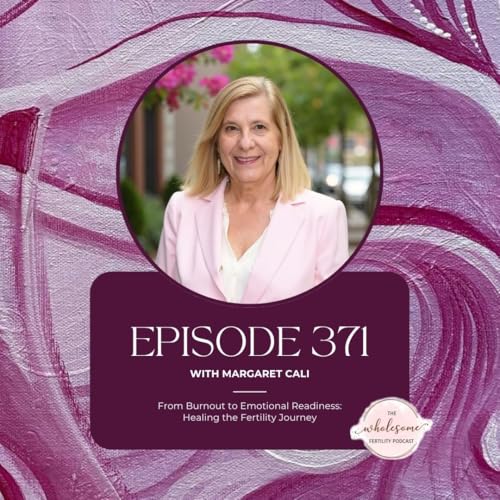Polycystic Ovary Syndrome (PCOS) affects millions of women worldwide, yet it remains one of the most misunderstood and frequently misdiagnosed hormonal conditions. In this episode of The Wholesome Fertility Podcast, Michelle is joined by Megan Stewart, Founder and Executive Director of the PCOS Awareness Association, to unpack why PCOS can look so different from person to person and why so many women struggle for years before receiving real answers.
Megan shares her powerful personal journey, from experiencing symptoms as young as nine years old to navigating years of medical dismissal, a PCOS diagnosis at sixteen, and later cervical cancer. Together, Michelle and Megan explore how PCOS impacts fertility, mental health, metabolism, and the nervous system, including insulin resistance, elevated testosterone, anxiety, depression, and cycle irregularity. This conversation also offers hope, highlighting supportive approaches such as acupuncture, lifestyle rhythm, nervous system regulation, and holistic care that can help restore balance and empower women to trust their bodies again.
Key Takeaways:
- PCOS symptoms and why they vary so widely
- Misdiagnosis and common PCOS myths
- Hormones, insulin resistance, and fertility challenges
- The overlooked mental health impact of PCOS
- Acupuncture, holistic care, and nervous system support
- Building community, advocacy, and real-world resources
Guest Bio:
Megan Stewart is the Founder and Executive Director of PCOS Awareness Association, one of the leading organizations dedicated to education, advocacy, and support for people with PCOS. She works to close the diagnosis gap, improve healthcare equity, and empower individuals to understand and advocate for their own bodies. Through community programs and nationwide initiatives, Megan champions compassionate, evidence-based PCOS care.
Connect with Megan:
Visit their website
Follow them on Instagram for more updates
Disclaimer: The information shared on this podcast is for educational and informational purposes only and is not intended as medical advice. Please consult with your healthcare provider before making any changes to your health or fertility care.
Ready to discover what your body needs most on your fertility journey?
Take the personalized quiz inside The Wholesome Fertility Journey and get tailored resources to meet you exactly where you are:
https://www.michelleoravitz.com/the-wholesome-fertility-journey
For more about my work and offerings, visit: www.michelleoravitz.com
Curious about ancient wisdom for fertility? Grab my book The Way of Fertility:
https://www.michelleoravitz.com/thewayoffertility
Join the Wholesome Fertility Facebook Group for free resources & community support:
https://www.facebook.com/groups/2149554308396504/
Connect with me on social:
Instagram: @thewholesomelotusfertility
Facebook: The Wholesome Lotus
 12 m
12 m 47 m
47 m Feb 10 20261 h y 14 m
Feb 10 20261 h y 14 m 58 m
58 m Jan 27 202649 m
Jan 27 202649 m 50 m
50 m 49 m
49 m 22 m
22 m
